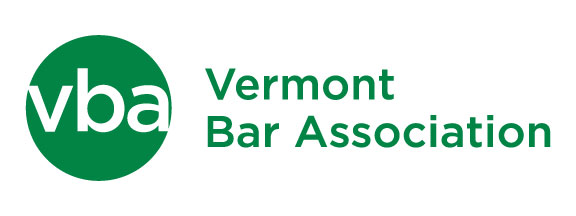13-02 A Vermont licensed attorney may represent residents of Vermont and other states in administrative proceedings before the Social Security Administration Office of Disability Adjudication and Review as may an attorney not licensed in Vermont represent Vermont residents in such proceedings.
08-03 Lawyer’s proposal to share fees with a nonlawyer (mortgage broker) representing clients seeking reduced mortgage payments is impermissible fee-splitting. Lawyer may not form an LLC with the nonlawyer, who would own a minority interest in the LLC and be an employee, because to do so could impair Lawyer’s independent professional judgment. Lawyer may engage the services of the nonlawyer strictly as an independent contractor or employee but may only do so only with close and adequate supervision of the work product of the nonlawyer.
03-08 A nonlawyer’s proposed business that involves the preparation of affidavits and other Court filings, on the basis of which legal rights are secured, undertakes conduct that constitutes the unauthorized practice of law. It is permissible for a lawyer to associate with the nonlawyer in carrying out such business; provided, however, that the lawyer actually supervises the conduct of the nonlawyer and oversees the work product that is provided to the client; and further provided that lawyer takes appropriate precautions to avoid any improper fee-splitting with the nonlawyer.
01-05 A legal assistant, paralegal, or four-year law clerk may not sign court pleadings with an attorney’s name and the paraprofessional’s initials after the attorney’s name.
99-03 With client consent, a supervising attorney may permit a paralegal to conduct a loan closing on behalf of a lender client where the client consents, the paralegal’s role is ministerial in nature, and the attorney is available for questions, at least by telephone.
97-11 An attorney who has received a disciplinary suspension imposed by the Supreme Court is subject to the continuing jurisdiction of the Professional Conduct Board and remains bound by the Code of Professional Responsibility and the Disciplinary Rules. A suspended attorney may be employed as a law clerk, paralegal, investigator or in any capacity as a lay person, by a licensed lawyer or law firm on an hourly or salaried basis, but may not share in legal fees. Such employment should be restricted to activities that are performed for the employing attorney, as opposed to direct services to clients; must be supervised by the employing attorney; and must not be activities that constitute the practice of law; nor should the employment arrangement give the appearance to the public or to clients that the suspended attorney is permitted to practice law.
The Committee on Professional Responsibility issues this Opinion after considerable discussion and debate, which reflected differences among the Committee members on the resolution of the questions presented. Moreover, neither the Disciplinary Rules, nor other rules, orders or decisions of the Vermont Supreme Court offer specific guidance on every issue. Therefore, we emphasize that this Opinion attempts to fill the gaps in the relevant authorities, offers useful guidelines to the members of the Bar and is purely advisory.
94-01 An attorney aids in the unauthorized practice of law and violates Rules of Professional Conduct regarding conflict of interest, fee-splitting and the provision of independent legal advice when said attorney participates in a financial planning company’s arrangement whereby that organization gathers information necessary to prepare estate planning documents, prepared the documents and sends the documents to attorney for review.
90-02 An unlicensed lawyer who provides consultation to a licensed Vermont attorney, who in turn advises his or her clients, is not engaged in the unauthorized practice of law.
88-04 A non-lawyer employee of a law firm may not represent the firm’s client at proceedings before the Motor Vehicle Arbitration Board.

